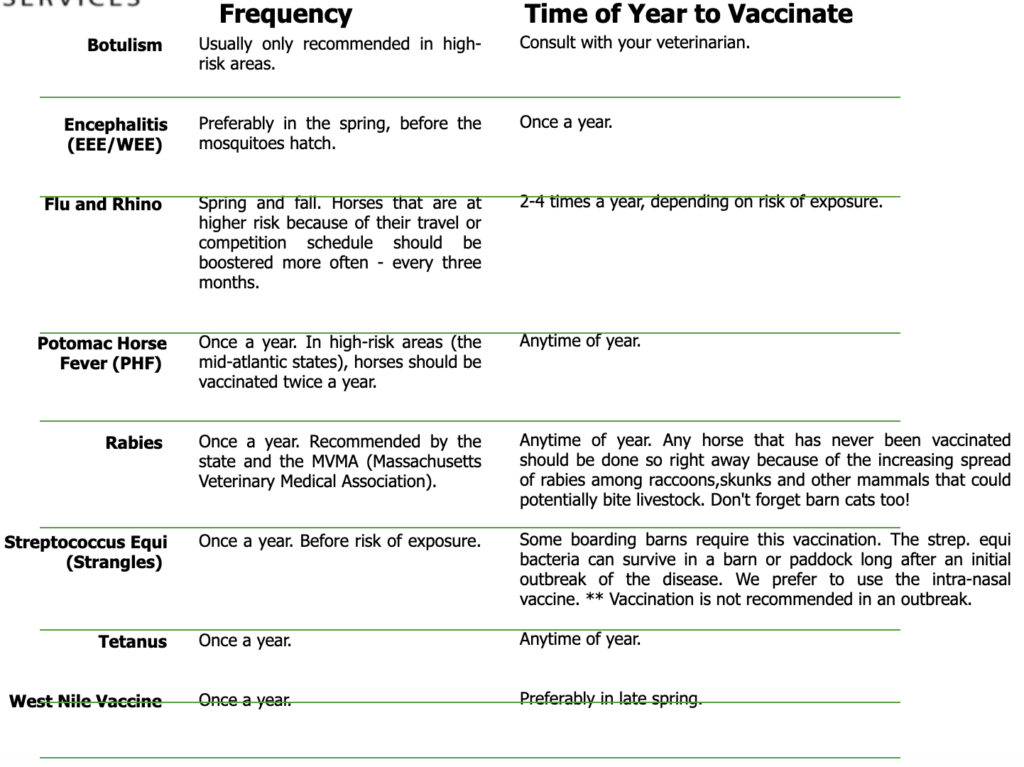
WHAT TO DO IF YOUR HORSE HAS A REACTION
All vaccines are tested carefully for safety before they are made available for horses, but some horses are more prone to having a reaction to shots than others. If your horse seems to have a stiff neck or has lost interest in his food, keep him warm and comfortable and keep an eye on him. A certain amount of walking around and stretching may make him feel better, but don’t turn your horse out if he’s going to gallop around and break a sweat. If his neck is really stiff, you can apply a hot towel to that area and hang up a hay net to make it easier for him to eat. Check his temperature. If your horse is unusually sore after a vaccination or is running a fever, consult your veterinarian to see whether it’s advisable to give him some Bute (Phenylbutazone) or Banamine (Flunixin Meglumine). Most reactions to vaccinations are mild and clear up on their own within a day or so. Severe reactions to vaccinations are rare, but as with any signs of serious illness, call your veterinarian immediately.
SCHEDULING VACCINATIONS TO AVOID REACTIONS
Although up to four of the vaccines listed here can be given at the same time, five or six shots in one day is too many. We recommend that you split up your horse’s shots to minimize the risk of a reaction.
In any case, please don’t wait until the day before a show or a long trip to vaccinate your horse. The added stress of shipping and competing right after vaccinating can make your horse more vulnerable to illness. It takes approximately two weeks to gain maximal immunity to the disease you have vaccinated for. Plan your riding schedule so you can give your horse the day off after the vaccinations.
